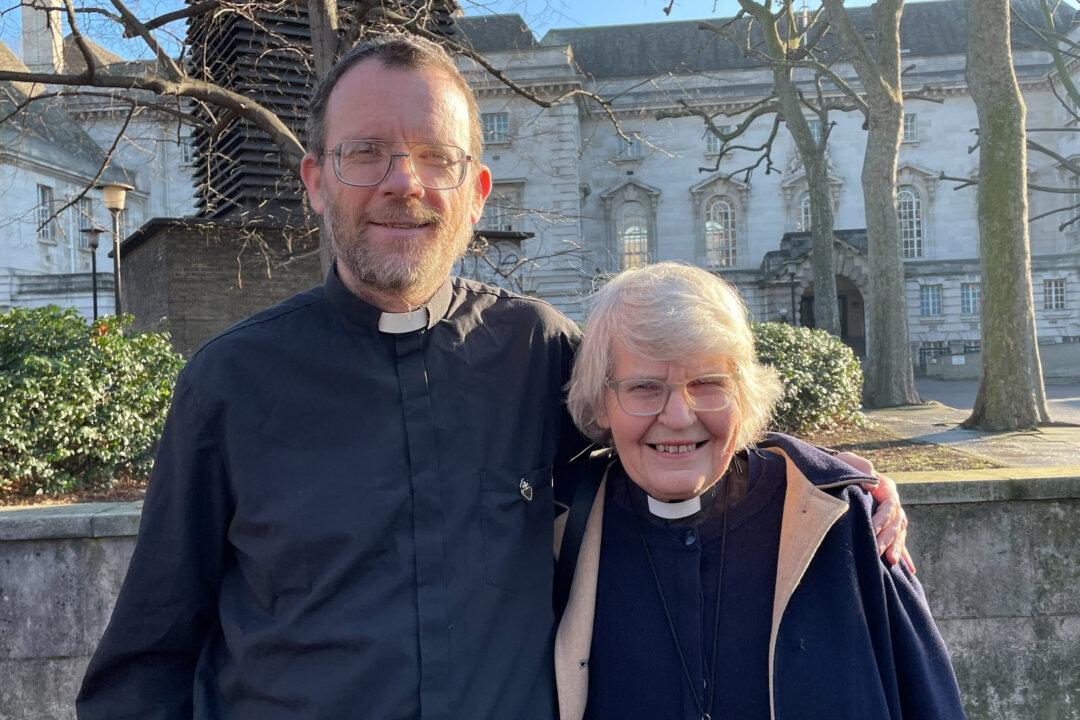A jury has cleared three Extinction Rebellion activists who caused 77 minutes of disruption to a rush-hour train in central London in 2019.
Shortly before 7 a.m. on Oct. 17, 2019, Philip Kingston, 85, super-glued his hand to a Docklands Light Railway (DLR) train at Shadwell Station, while Sue Parfitt, 79, and Martin Newell, 54, climbed on the roof and said prayers for the planet.





